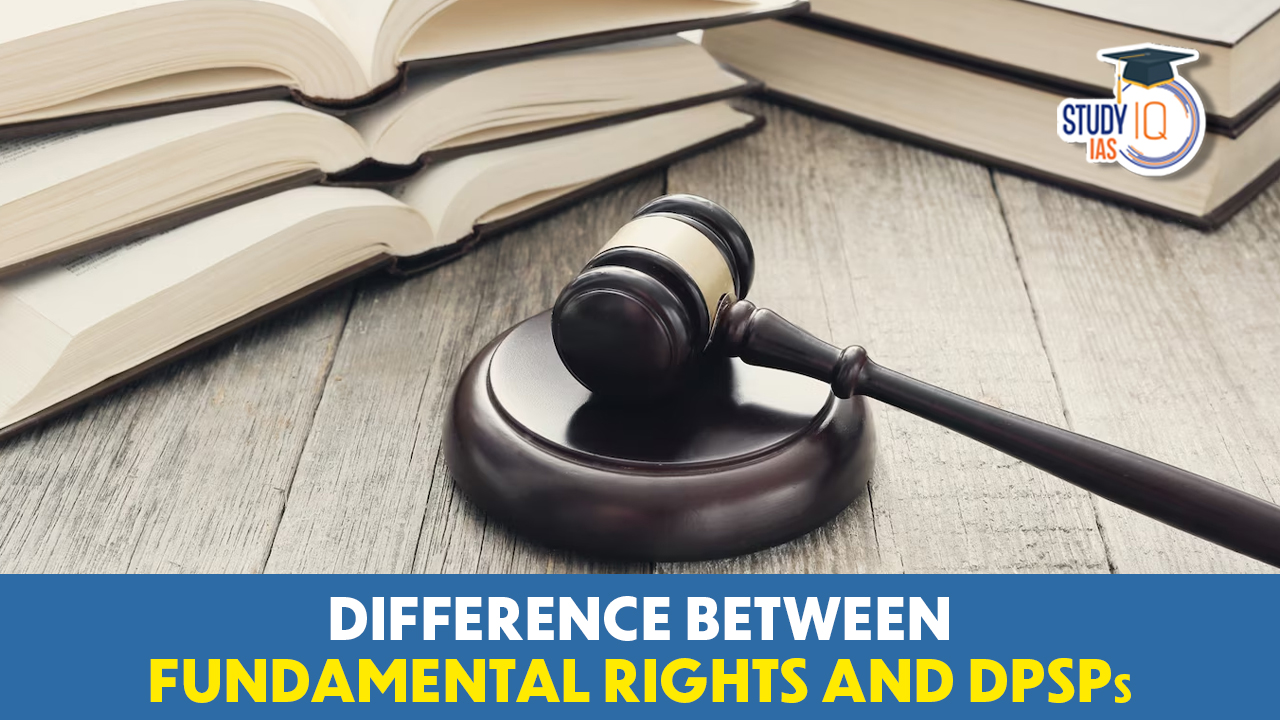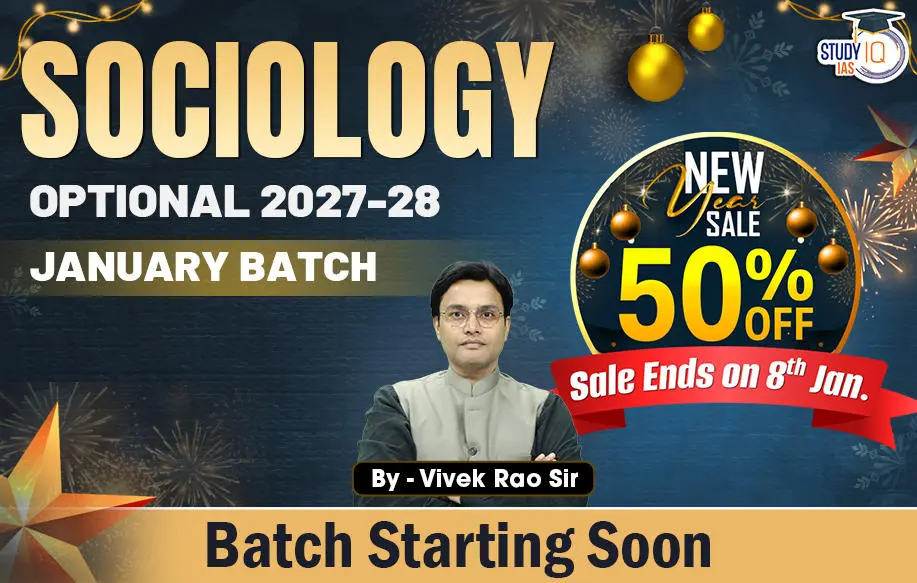Table of Contents
Difference Between Fundamental Rights and Directive Principles of State Policy
In the democratic framework of governance, a country’s constitution plays a pivotal role in safeguarding the rights and welfare of its citizens. India, as a sovereign republic, enshrines two significant pillars of justice and inclusivity within its constitution – Fundamental Rights and Directive Principles of State Policy.
While both these constitutional provisions aim to ensure the holistic development of the nation and its people, they differ in their nature, enforceability, and underlying objectives. Understanding these distinctions is essential to grasp the dynamic balance between individual liberties and societal progress that forms the bedrock of India’s constitutional framework.
Fundamental Rights:
Fundamental Rights are basic human rights protected by the Indian Constitution and guaranteed to all citizens. They apply equally, regardless of race, religion, or gender, and can be enforced in court under certain conditions.
Why are they called Fundamental Rights?
They are called Fundamental Rights because:
- They are guaranteed by the Constitution.
- They can be enforced in court, allowing individuals to seek justice if their rights are violated.
| There are six fundamental rights in the Indian Constitution. |
|
Directive Principles of State Policy
The Indian Constitution classifies Directive Principles of State Policy (DPSPs), but they are generally grouped into three types:
- Socialistic Principles
- Gandhian Principles
- Liberal-Intellectual Principles
| DPSP – Socialistic Principles | |
| Directive Principles of State Policy (DPSPs) are guidelines aimed at achieving social and economic justice and guiding the country toward a welfare state. They instruct the government to: | |
| Article 38 | Promote the welfare of the people by securing a social order through justice—social, economic and political—and to minimize inequalities in income, status, facilities and opportunities |
| Article 39 | Secure citizens:
|
| Article 39A | Promote equal justice and free legal aid to the poor |
| Article 41 | In cases of unemployment, old age, sickness and disablement, secure citizens:
|
| Article 42 | Make provision for just and humane conditions of work and maternity relief |
| Article 43 | Secure a living wage, a decent standard of living and social and cultural opportunities for all workers |
| Article 43A | Take steps to secure the participation of workers in the management of industries |
| Article 47 | Raise the level of nutrition and the standard of living of people and to improve public health |
| DPSP – Gandhian Principles | |
| These principles are based on Gandhian ideas and reflect the plans for rebuilding that Gandhi shared during the national movement. They instruct the government to | |
| Article 40 | Organise village panchayats and endow them with the necessary powers and authority to enable them to function as units of self-government |
| Article 43 | Promote cottage industries on an individual or cooperation basis in rural areas |
| Article 43B | Promote voluntary formation, autonomous functioning, democratic control and professional management of co-operative societies |
| Article 46 | Promote the educational and economic interests of SCs, STs, and other weaker sections of society and protect them from social injustice and exploitation |
| Article 47 | Prohibit the consumption of intoxicating drinks and drugs which are injurious to health |
| Article 48 | Prohibit the slaughter of cows, calves, and other milch and draught cattle and improve their breeds |
| DPSP – Liberal-Intellectual Principles | |
| These principles reflect the ideology of liberalism. Under various articles, they direct the state to: | |
| Article 44 | Secure for all citizens a Uniform Civil Code throughout the country |
| Article 45 | Provide early childhood care and education for all children until they complete the age of six years. (Note: 86th Amendment Act of 2002 changed the subject matter of this article and made elementary education a fundamental right under Article 21 A.) |
| Article 48 | Organise agriculture and animal husbandry on modern and scientific lines |
| Article 49 | Protect monuments, places and objects of artistic or historic interest which are declared to be of national importance |
| Article 50 | Separate the judiciary from the executive in the public services of the State |
| Article 51 |
|
Read about: Important Articles of Indian Constitution
Fundamental Rights and Directive Principles of State Policy Key Differences
Here is a table that gives the difference between Fundamental Rights and Directive Principles of State Policy:
| Aspect | Fundamental Rights | Directive Principles of State Policy |
| Nature | Fundamental Rights can be enforced in court, meaning citizens can go to court if these rights are violated. They are very important and provide legal protection to individuals. | Directive Principles of State Policy cannot be enforced in court. While they are important guiding principles, individuals cannot seek legal remedies if the government does not follow them. |
| Enforceability | Fundamental Rights can be enforced through legal actions in court. If a law or government action violates these rights, citizens can challenge it in court. | Directive Principles do not give citizens the same rights to take legal action in court. While they outline the government’s responsibilities, citizens cannot file lawsuits just for violations of these principles. |
| Legal Provisions | Fundamental Rights are listed in Part III of the Indian Constitution, in Articles 12 to 35. These articles explain different rights and freedoms that individuals have. | Directive Principles are found in Part IV of the Indian Constitution, in Articles 36 to 51. They provide guidelines for government policies and actions to ensure the welfare of the people. |
| Individual vs. State | Fundamental Rights are designed to protect the personal freedoms of citizens. They act as checks on government power to ensure a fair and just society. | Directive Principles aim to promote the welfare of the state and its people. They guide the government in creating policies for economic and social justice and to improve people’s quality of life. |
| Nature of Rights | Fundamental Rights are absolute and cannot be violated. If they are, it is considered unlawful and unconstitutional. Citizens have a clear legal right to these rights. | Directive Principles are more like goals and ideals for the state. They are flexible and depend on the country’s social and economic conditions for implementation. |
| Scope of Application | Fundamental Rights are applicable to both citizens and non-citizens residing in India. These rights extend to all individuals, regardless of their nationality. | Directive Principles are primarily directed towards the State’s role in governance and public policy. They apply to the government’s decision-making processes and the formulation of laws and policies. |
| Examples of Rights | Fundamental Rights include essential rights such as the Right to Equality, the Right to Freedom of Speech and Expression, the Right to Religion, the Right to Life, and Personal Liberty, among others. | Directive Principles include rights related to the Right to Work, Right to Education, Right to Health, Right to Social Security, and Protection of National Monuments, among others. |
| Duty of the State | The State has a constitutional duty to protect and uphold Fundamental Rights. It must ensure that laws and policies do not infringe upon these rights, and it must safeguard the liberties of its citizens. | The State has a duty to apply Directive Principles in making laws and policies. It is required to strive to achieve the goals outlined in these principles and work towards the welfare of the people. |
| Conflict Resolution | In case of a conflict between Fundamental Rights and any law or action of the State, Fundamental Rights take precedence, and the court will ensure the protection of individual rights. | In certain situations, Directive Principles may take precedence over Fundamental Rights. This may happen when the court considers that the application of Directive Principles is essential for achieving a just and equitable society. |
| Historical Perspective | The concept of Fundamental Rights in the Indian Constitution is inspired by the American Bill of Rights, which grants certain inalienable rights to its citizens. | The Directive Principles of State Policy were derived from the Irish Constitution, which provided for the social, economic, and political rights of its citizens. |
| Relationship with Citizens’ Rights | Fundamental Rights act as a check on the State’s power and ensure that individual liberties are protected. These rights empower citizens to challenge any arbitrary or oppressive actions by the government. | Directive Principles complement Fundamental Rights and ensure that the State works towards the collective well-being and development of society. They guide the State in formulating policies that promote social and economic justice. |
| Impact on Citizens’ Lives | Fundamental Rights provide immediate legal remedies and safeguards against any infringement on individual liberties. Citizens can exercise these rights to protect themselves from unjust actions. | Directive Principles may take longer to realize their impact on society as they require policy implementation and long-term planning. Their full realization depends on the State’s commitment to their implementation and the availability of resources. |
Read about: Supreme Court of India
Difference Between Fundamental Rights and DPSPs UPSC
The difference between Fundamental Rights and Directive Principles of State Policy is crucial for the UPSC exam. It falls under the UPSC Syllabus, which requires aspirants to understand the Indian Constitution’s provisions and the governance framework. Fundamental Rights are justiciable and enforceable, ensuring individual liberties, while Directive Principles are non-justiciable, guiding the state’s policies towards the welfare of the people. Understanding this distinction aids aspirants in tackling questions related to the Indian Constitution, governance, and the delicate balance between individual rights and the state’s responsibility to uplift society. Aspirants can prepare such topics through UPSC Online Coaching and UPSC Mock Test.
Read about: Salient Features of Constitution of India


 SLAPP Suits: Meaning, Examples, Impact o...
SLAPP Suits: Meaning, Examples, Impact o...
 Finance Commission of India, Articles an...
Finance Commission of India, Articles an...
 High Number of Pending Cases in Supreme ...
High Number of Pending Cases in Supreme ...

























